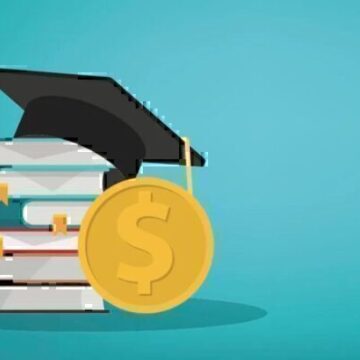CDs offer a guaranteed return with fixed interest rates, making them a safe option for stable savings growth..
Understanding the different types of CDs and their features can help you choose the best option to meet your financial goals. Our trusted partners at BECU outline the pros and cons of investing in 2024.
Want to learn more? Connect with Lea, GreenPath’s free virtual financial coach who offers insight on time frames, CD laddering, and current rates.
Looking for a safe way to grow your money with a guaranteed return? CDs might be a good fit! They’re like super savings accounts with fixed interest rates. Current CD rates, although slightly declining, remain relatively high compared to historical standards. This makes CDs a good choice for those who prioritize stability and predictability in their investment strategy.
Given the Federal Reserve’s current stance and forecast, the trend points towards potential rate cuts later in 2024, which could lead to lower CD rates in the future. Translation? It might be wise to lock in higher CD rates now before they drop further.
What is a Certificate of Deposit (CD)?
A Certificate of Deposit, or CD, is a savings product offered by banks and credit unions. It allows you to deposit money for a fixed period, known as the term, and earn interest at a higher rate than a regular savings account. The term can range from a few months to several years, and the interest rate is usually fixed for the duration.
Think of it like this: You deposit $1,000 for a 1-year CD at 3% interest. The bank guarantees your money is safe and will grow to $1,030 in a year. You can’t touch it without a penalty, but it earns more interest than a regular savings account. CDs are a safe option for growing your savings with some predictability, but they might not keep up with inflation or offer the highest returns.
Types of CDs
Certificates of Deposit (CDs) provide a variety of choices to match different financial strategies and goals, each with its own set of features and benefits.
- Traditional CD: This is the most common type. You deposit a lump sum for a fixed term and earn a fixed interest rate. Early withdrawal typically incurs a penalty.
- Jumbo CD: For those with substantial savings, a jumbo CD requires a larger minimum deposit (often $100,000 or more, varies by bank) but offers a higher interest rate.
- No-Penalty CD: This CD allows you to withdraw your money before the term ends without incurring a penalty, offering more flexibility.
- Bump-Up CD: If interest rates rise, a bump-up CD allows you to increase your rate once during the term, potentially increasing your earnings.
- IRA CD: These CDs are held within an Individual Retirement Account (IRA) and combine the benefits of both CDs and IRAs, offering tax advantages.
Transform your finances with GreenPath’s expert support. Take charge of your money starting now.
800-550-1961877-337-3399The Pros and Cons of CDs
Investing in Certificates of Deposit (CDs) can be beneficial, but whether CDs are a good idea for you depends on your financial goals, need for liquidity, and outlook on interest rates.
Our trusted partners at BECU dive into the pros and cons of CDs in 2024, pointing out that “opening a CD in 2024 may be a good idea if you think CD rates will drop in the next 12-24 months” and encouraging investors to carefully consider their savings goals and be willing to adjust strategies if the economic climate changes.
Maximizing the Benefits of CDs
Navigating CDs requires careful consideration and planning. Before you invest, here are some strategies to help you maximize your savings (and minimize risk):
- Research and Compare: Different banks and credit unions offer varying rates and terms, so shopping around is key. Online comparison tools can quickly show you the best rates for the terms you want.
- Reinvest Wisely: When your CD matures, reinvest the principal and interest into a new CD. This strategy, known as CD rolling, keeps your savings growing. Consider interest rate trends when reinvesting: opt for shorter-term CDs if rates are rising, and longer-term CDs if rates are falling.
- Diversify: Avoid putting all your savings into one CD. Instead, diversify across multiple CDs with different terms and rates, a strategy known as CD laddering. This ensures regular access to your savings and allows reinvestment in potentially higher-yielding CDs as market conditions change.
- Stay Informed: Stay updated on economic trends and interest rate changes to make strategic CD investment decisions. Monitoring factors like monetary policy and inflation can help you predict rate movements, aiding in timing your CD purchases and maturities to maximize returns.
Learn More
Certificates of Deposit can be a valuable part of your financial wellness strategy, especially for budget-minded individuals seeking low-risk investment options. Want to learn more? Connect with Lea, GreenPath’s virtual financial coach who offers cost-free, judgment-free advice on whether this is a good time for you to consider investing (she’ll also review your credit report if that’s on your financial to-do list this year.)
GreenPath Financial Service
Free Debt Counseling
Take control of your finances, get tailored guidance and a hassle-free budgeting experience. GreenPath offers personalized advice on how to manage your money.










